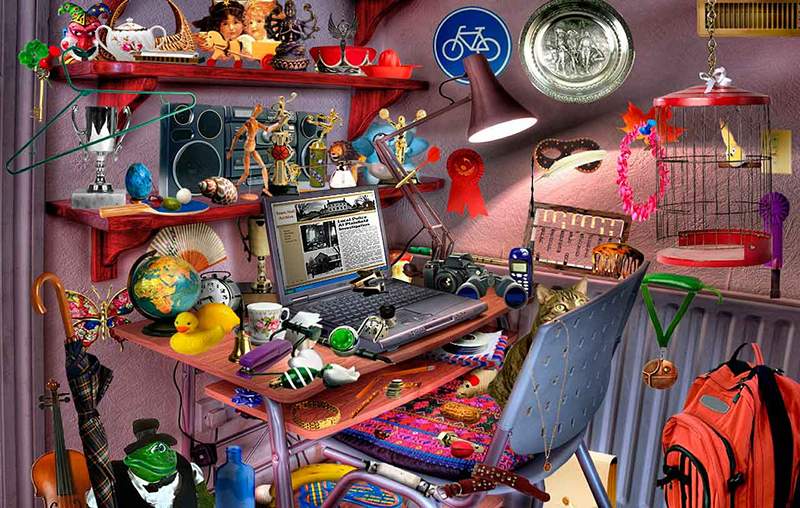7 ways to know if you are addicted to chaos

- 1538
- 321
- Gregory King
Content
Toggle- Chaos addiction
- 1. Go late
- 2. Get into debt
- 3. The fight
- 5. The tragedy
- 6. The suffering
- 7. The fantasy
Chaos addiction
All addiction It is characterized by feeling the imperative need to be in contact with the substance that modifies the status of normality of the body and mind; In the case of chaos It happens similarly, although with the variable that the substance that changes the behavior is produced by our body. Seen in the dictionary, the chaos means disorder and confusion, If we apply it to the matter, these are then people who need to live in the conflict, hurry, misfortune, contradiction and/or anguish. The above causes the human brain to perceive these situations as threats and segregate substances such as adrenalin and the cortisol, whose purpose is to send the emergency signals to the body so that I acted peremptoryly and resolve the event in the act. These substances act as a stimulant; Therefore, when normality is achieved, the effects pass and the person is perceived in a kind of "depression"; generating the need to feel stimulated again, wrapping in the circle of the addiction. All the above is what leads an individual to attract or seek difficulties that generate chaos in their life, Of course, unconsciously.
Basically the individual becomes a Addict to adrenaline and cortisol; However, it develops, because of this, a compulsion behavior to the chaos. Let's look at some forms of your expression:
1. Go late
It is a behavior of people who are continuously rushed, frequently arrive late everywhere, breach their commitments; Usually, they lack hours to finish the day. It is the typical person who is distracted and then Galopa to reach somewhere or perform an activity.
2. Get into debt
Debts either with the bank, friends, some type of business, etc., It represents that this individual is left over days to reach the end of the month, being the prototype of someone unable to say "No", When they offer you something. It is characterized by the disorder in their economy, they are distressed and agitated every term of the month.
3. The fight
Here we find beings who live looking for dispute or discussion with others, are in constant attitude of defense and in active attack position. Depending on the interlocutor possibly pass from verbal aggression to physics. It is the typical person who focuses on the minimum details and is perceived offended with nimios gestures, behaviors or words of the others.
They are the beings that find in the illness a way of living, they know the names of the medicines, the protocols of action in emergency or severity events, they read obsessively about the various pathologies, even “they know more than the doctor”.
5. The tragedy
It is a way of living in excitement, they are individuals who look at the negative or calamitous side of each situation; They speak, read and think about terrible and catastrophic events and tragic stories that possibly manage to materialize in their life: accidental, getting sick, enhancing, etc.
6. The suffering
They are the "free sufferers"; that is, those individuals who carry the problems of others as if they were their own, especially when they do not have one. The latter resembles a story that grandparents told about women who hired in some burials of people to cry a dead man who did not know; The fact was associated as a sample of "a Good burial ". Which is an example of the prize that society gave and continues to give (in other ways) to suffering, favoring victimhood in certain people.
7. The fantasy
These are people who recreate past or future stories or events that never made or come to live. They evade the present moment with their mental elucubrations. They build in their mind images, dialogues and scenes that end up believing real, in pathological cases. The nuance to differentiate with what it means to dream and aspire, is that these people never work to materialize their fantasies (clear goals).
The compulsion a chaos It is an emotional conflict that can lead to misfortune. To overcome it, it is necessary for the person to recognize and face him; In the first extent, it will be enough to order your life, it is as simple as that there can be no bed in the bathroom, nor in the kitchen the sink, it is common sense, for example: for those who lack hours of the day, they will need carry and Fulfill an agenda, They are beings that when they get up do not know where to start; For those who borrow, as organizing the economy, doing The accounts with pencil and paper, aiming everything that is spent at the beginning and thus identify how they use their money, then distributing it and paying the debts, although at first it is paid only. In sum, they require commitment to themselves and leave the puerile attitude that characterizes them.
A person can present one or several of the ways we have exposed and even all. The relevant thing is to reflect and become aware of the possibility of holding this compulsion and if there is difficulty or impossibility to modify behavior, I recommend that professional help be attended or sought.
There is a film that has inspired me to write this article, which shows a typical behavior of compulsion to the chaos, which is titled "To the limit of truth". I highly recommend it, if you have worried the subject.

